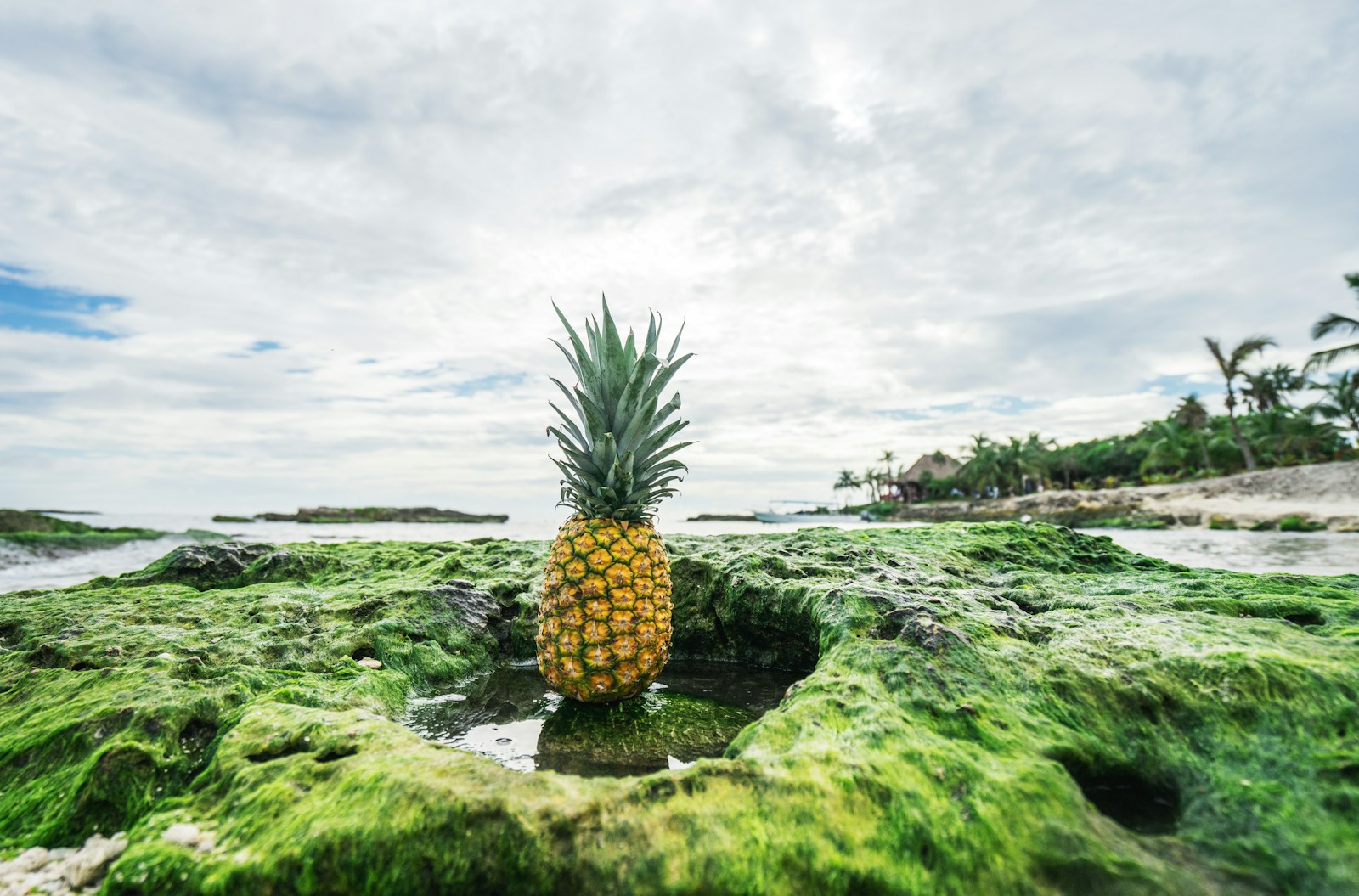
ananas

pineapple
An 'ananas' is a tropical fruit known for its distinctive shape and sweet flavor in French. It's the same as 'pineapple' in English. For example, you can say 'J'aime manger de l'ananas', which translates to 'I like to eat pineapple'.
Example sentences using: ananas
J'aime manger des ananas.

I love eating pineapples.
This sentence uses the verb 'aimer' (to love) followed by the action 'manger' (to eat), and finally 'des ananas' (pineapples). It is expressing a personal preference for the action of eating pineapples.
L'ananas est un fruit délicieux.

The pineapple is a delicious fruit.
This sentence is descriptive, telling us that 'l'ananas' (the pineapple) is 'un fruit délicieux' (a delicious fruit). It is structurally simple: subject, verb, predicate.
Il y a des ananas dans mon jus.

There are pineapples in my juice.
This sentence employs the common French construction 'Il y a', which is equivalent to 'There is' or 'There are' in English. The phrase 'dans mon jus' means 'in my juice', indicating the location of the pineapples.